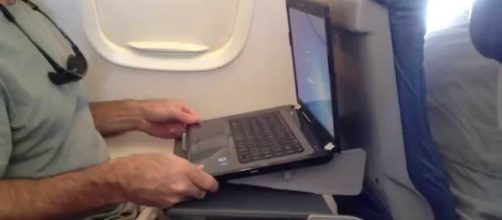Passengers from 10 airports in the Middle East and Africa on flights bound for the U.S. can now carry on board their laptops and tablets. The Trump administration ended the four-month ban on devices on Wednesday Reuters reported.
As a result of the ban, demand for seats on U.S.-bound flights drastically went down from countries where the majority of travelers are Muslims. Before Wednesday, the U.S. Department of Homeland Security lifted the ban in early July on Etihad Airways, the air carrier of the United Arab Emirates, after the airline met the requirements of the U.S.
government.
Stepped-up security measures
It is understood that Etihad got an earlier reprieve from the gadget ban than nine other airports because of stepped-up security measures put in place by the UAE carrier. Ironically, on the same day, air passengers from almost 300 international airports on planes bound for the U.S. would also experience stepped-up security measures, US News reported. Unlike the restrictions on Middle Eastern and African passengers, the travelers from the 300 gateways – which include those in Canada and Mexico – can bring on board electronic devices larger than mobile phones.
Passengers, however, must present their laptops and tablets for inspection and prove the devices can be powered on.
The process is expected to lead to longer security screenings at airports, so travelers were warned by airline and aviation authorities. The additional screening will be done randomly, not on all passengers. Powering the gadget is one way of ensuring that the battery of the device is real and not explosives. An intelligence report from Israel tipped U.S. aviation authorities of plans by ISIS to blow up aircraft by disguising bombs as device batteries.
The tougher security measures will apply to passengers of about 180 foreign and U.S.-based airlines that have flights to and from 280 gateways in 105 nations. Daily, over 2,000 international flights land in the U.S., according to the Department of Homeland Security.
Riyadh Airport is the last covered by the ban
The department, in a tweet on Wednesday, confirmed that the King Khalid International Airport in Riyadh, Saudi Arabia, was the last of the 10 airports to remove the Laptop ban. Despite the lifting of the ban which is a relief to Etihad, Emirates, Qatar Airways, Turkish Airlines, Saudi Arabian Airlines, Royal Jordanian, Kuwait Airways, EgyptAir, and Royal Air Maroc, the ban on citizens of six Muslim-majority countries of Iran, Libya, Somalia, Sudan, Syria, and Yemen stays in place.


